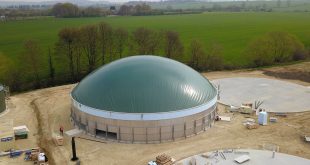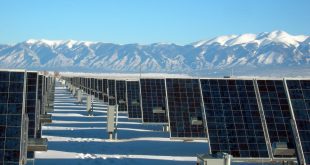Alternative energy research has led to the development of state of the art [tag]alternative energy[/tag] sources for the home. One of the advantages of using alternative energy is that it is a renewable resource whereas our supply of coal and other fossil fuels is depleting. This advantage of renewable energy and alternative energies has many companies and people looking for different ways to power up.
Sometimes called renewable resources, alternative energy does not need fossil fuel or even the splitting of the atom to be produced. It is called renewable because the sources of it are constantly being produced. It does not cause the pollution that oil and gas cause. This kind of energy is not really new. What is new is that we now categorize these forms of energy as alternative energy.
The forms that alternative energy may take are fuel cells, geothermal energy, wind power, biomass, hydroelectric energy, solar energy and water energy such as wave and tidal energy.
*[tag]Fuel cells [/tag]as a type of alternative energy is usually associated with electric cars, or hybrid cars. Electrochemical devices produce power through a chemical reaction. The primary benefit of fuel cells technology is that power is produced without the production of harmful pollutants. They are still very expensive to produce, however.
*[tag]Geothermal energy[/tag] can be a powerful source of energy. It is ideal for small scale use to heat houses, businesses and small industry. On a larger scale, geothermal plants extract the heat from the earth and use it to create steam to power turbine engines.
*[tag]Wind turbines [/tag]produce energy using the same principal as windmills. Blades are moved by the wind, and a shaft attached to the blades rotate a generator that produces energy. This energy is stored in batteries. Wind is, of course required to run this type of alternative energy, so the more wind you have the better it will work. Sites where there is a lot of wind, such as open farmland are good for wind turbines, or other locations that cannot be reached by powerlines.
*Biomass is organic material that can be converted to fuel. There are many types, such as animal waste, crops and grains, wood and other byproducts from mills and forests as well as from aquatic plants. One type uses the matter to burn to produce steam power; another type transforms the matter into a gas or liquid.
More: continued here
 Alternative Energy HQ solar power for homes, wind energy, and bio fuel issues
Alternative Energy HQ solar power for homes, wind energy, and bio fuel issues







